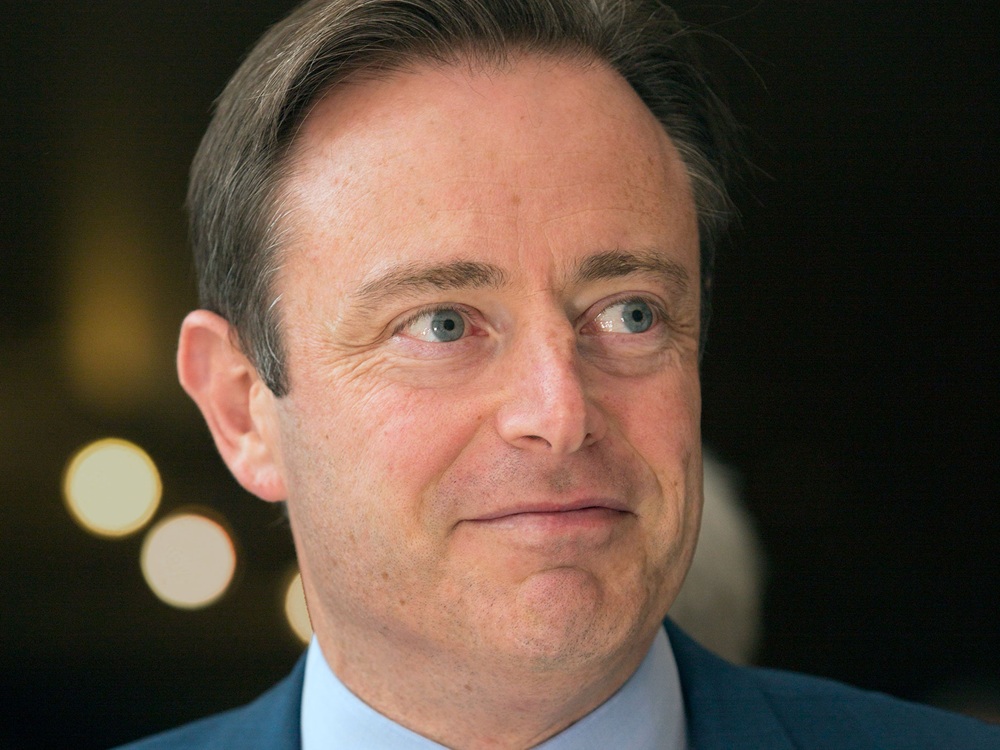The leader of Plaid Cymru’s sister party in Belgium is set to become Prime Minister

Luke James, Brussels
The thought of Rhun ap Iorwerth becoming Prime Minister of the United Kingdom might stretch credulity, but Plaid Cymru’s sister party is set to lead the government in Belgium where politics is imitating the surrealist art for which the country is famed.
After eight months of negotiations between five parties, a coalition agreement was finalised on Friday which will see Bart de Wever, the leader of the New Flemish Alliance (N-VA) party whose raison d’être is to create an independent republic of Flanders, become the Prime Minister of the Kingdom of Belgium.
“The man who didn’t want to be Premier,” was the frontpage headline of Le Soir, the Belgian francophone daily newspaper, this weekend.
Federal elections
De Wever became the natural, if reluctant, candidate for the role as a result of last June’s federal elections, which saw the N-VA defy the polls to emerge as the largest party in the Belgian parliament – ahead of the far-right Flemish nationalists Vlaams Belang.
While the N-VA spurned the top job after winning the 2014 elections with more seats than they have today, even many francophones now see De Wever, counterintuitively, as the person able to stabilise the whole state amid the threat from Vlaams Belang.
“Bart de Wever is in Flanders someone who was able to stop the far-right, and I say that not losing sight of something: that all around us in Europe, the far-right is winning,” said Maxime Prevot, the leader of the Walloon centrist party Les Engagés, one of the five parties in the coalition, when asked why he was supporting the N-VA leader to become Prime Minister.
While the first point in the statutes of the N-VA is the creation of an independent Flanders, the party has in reality for a long time concentrated on achieving the maximum level of devolution by turning Belgium into a Swiss-style confederation.
“If confederalism works well, an independent Flanders is no longer necessary,” de Wever said ahead of last June’s general election.
But even its transitional constitutional demands look set to be put on ice for the duration of the ‘Arizona’ coalition government, with the N-VA currently content to push for the separation of Belgium’s national weather institute.
Economics
Instead De Wever, who once remarked that his real bosses were the Flemish employers association, sees the coalition, largely made up of other centre-right parties, as a chance to pursue the party’s economic agenda.
Funding for public services will be cut by 14 billion Euro, women will be hardest hit by pension cuts worth three billion, and job seekers will see their benefits cut off after two years, according to Belgium’s trade unions who have already called a demonstration against the new government.
Those policies were responsible for a long hold up in negotiations as Vooruit, the Flemish Socialist party, came under pressure to seek better terms or stay out of the coalition, as the Walloon socialist party has chosen to do.
But white smoke finally emerged from the national military school on Friday evening where a conclave of party leaders had been ongoing since Wednesday lunchtime in a final effort to find a breakthrough.
Vooruit say they have negotiated a number of new progressive policies, but Dr Ed Poole of Cardiff University, recently a visiting scholas at KU Leuven who spoke at the N-VA’s special conferences on confederalism, said the decision was more personal than political.
“Bart de Wever is a master long term strategist, playing the long game by building close personal relationships with leaders from across the political spectrum,” said Dr Poole.
“De Wever’s relationship with the young, Instagram friendly leader of the Flemish socialists, Conner Rousseau, is almost universally labelled a ‘bromance’.
“The strength of this political relationship meant that Rousseau brought the Flemish socialists into a new centre-right dominated government led by a Flemish nationalist – even though their Francophone counterpart, the Parti Socialiste, adamantly refused to even participate in coalition talks.”
Industrial action
With a five party coalition to manage and unions promising a ‘hot future’ of industrial action, Dr Poole added: “Having dominated the political scene in Flanders for the past two decades, and now as Prime Minister of a notoriously fractious Belgium, all his political management skills will be needed in spades.”
The N-VA is part of the same European political party as Plaid Cymru and the Scottish National Party, the European Free Alliance (EFA).
Despite the fact de Wever will be the first head of state from the party and the first pro-independence politician to sit at the European Council, his government’s economic agenda means there is likely to be little enthusiasm from the party’s other more left-wing members.
The N-VA broke away from the Green/EFA group in the European Parliament to sit with the right-wing Conservative and Reformists group which was founded by the UK Conservative party during David Cameron’s leadership. The coalition agreement means 15 of the 27 governments in the European Union are now on the right of the political spectrum.
Support our Nation today
For the price of a cup of coffee a month you can help us create an independent, not-for-profit, national news service for the people of Wales, by the people of Wales.





